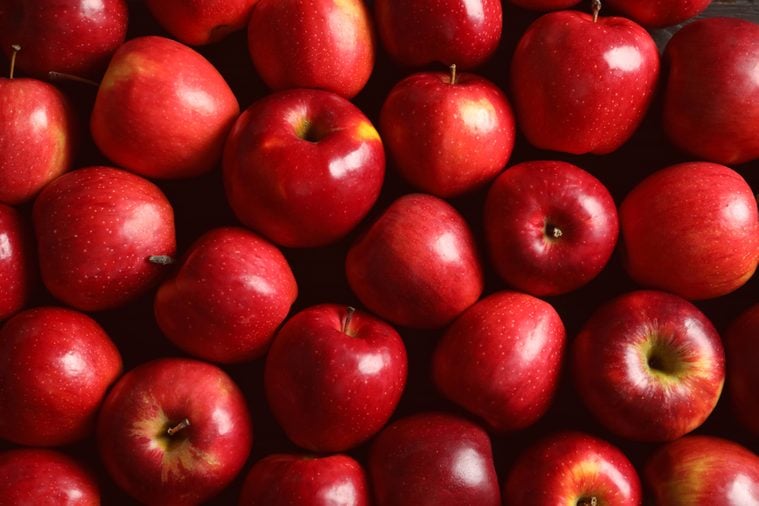
Eat an apple a day
Eating an apple a day—at least on the days you grocery shop—may encourage healthier choices. People who ate an apple before shopping bought 25 percent more fruits and vegetables than those who did not. “Having a small healthy snack before shopping can put us in a healthier mindset and steer us towards making better food choices,” says Cornell researcher Aner Tal, PhD, in a news release. The findings appear in Psychology & Marketing.

Do a shot
Of apple cider vinegar, that is. Apple cider vinegar helps keep blood sugar levels in check, which will keep you feeling fuller longer. Learn more about all of the ways that apple cider vinegar promotes weight loss.
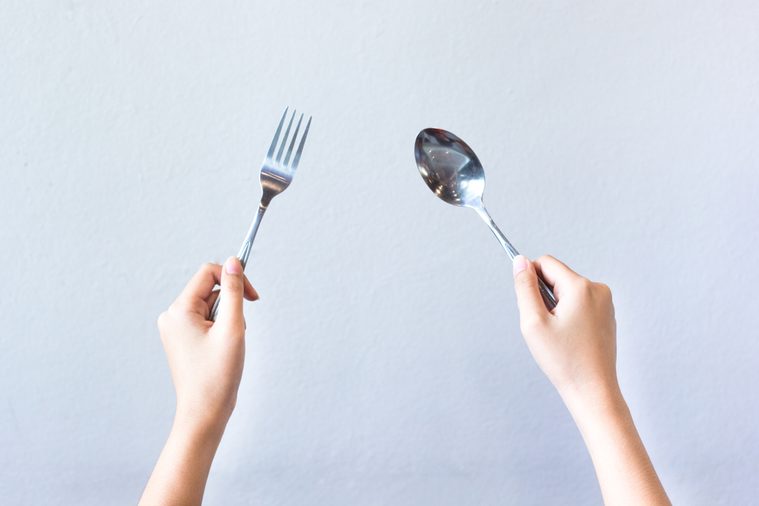
Pick your diet pattern
Low carb, no carb, low fat, Mediterranean? No problem, says Scott Kahan, MD, MPH, the director of the National Center for Weight and Wellness in Washington, DC. There is no one-size-fits-all miracle diet. “Pick the pattern that you like best because no plan is more effective than others for weight loss,” he says. “Following your taste will be the most reasonable and sustainable as long as you moderate the amounts you eat.” Here’s what it’s like to really follow the ketogenic diet.
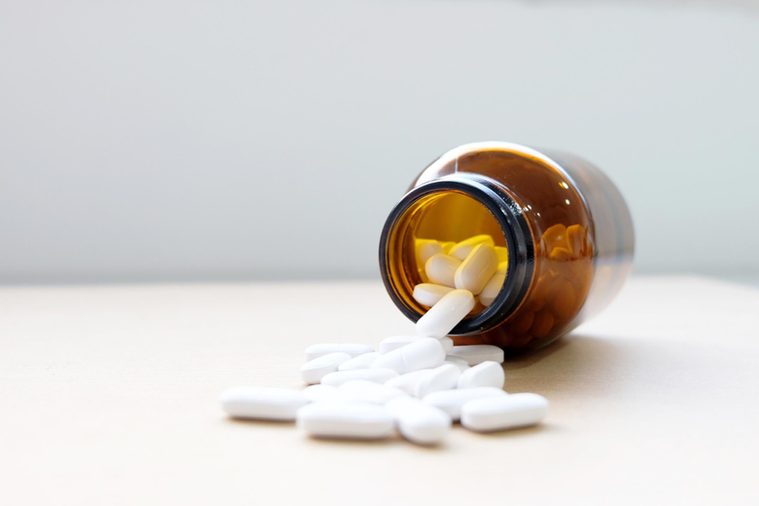
Consider an Rx
The U.S. Food and Drug Administration has approved five prescription weight loss pills for long-term use and they work, Dr. Kahan says. “These medications remain underutilized and underappreciated,” he says. “If diet and exercise are not working for you, ask your doctor about weight loss medications,” he says. “These are very well studied and effective when combined with healthy eating and regular exercise.” Get the scoop on all of the approved weight loss pills.
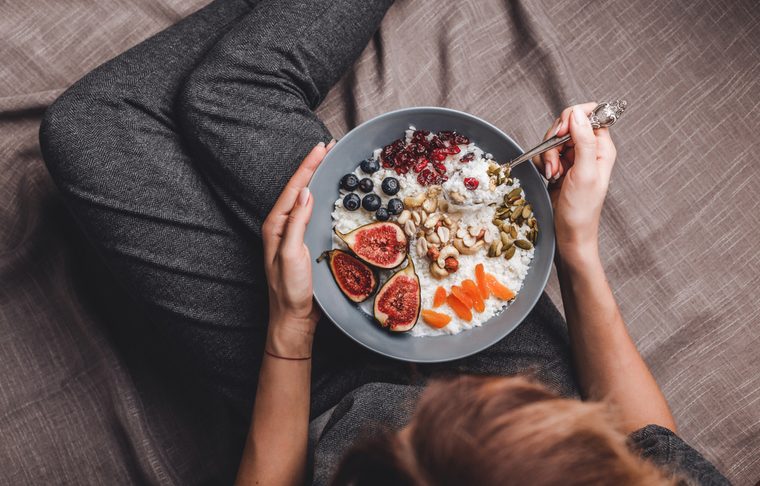
Check your gut
Restoring the balance between good and bad bacteria in your gut may play a role in promoting healthy and sustainable weight loss.” Research is ongoing, but it is clear that our gut microbiome plays a role in regulating appetite and weight, and we can expect targeted pre- and probiotics to come to market in the next few years,” Dr. Kahan says. Find out 30 simple ways to burn fat fast.
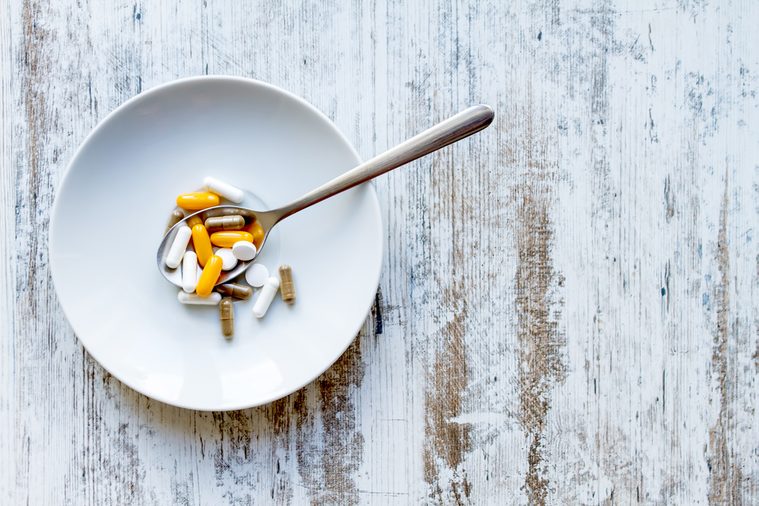
Don’t get scammed
Don’t believe the hype about weight loss supplements, Dr. Kahan says. “There are countless schemes and unproven supplements out there, but there is no solid data backing up any claims.” What’s more, he adds, there is little regulation of dietary supplements, and that means they may not even have the ingredients listed on the label, rendering them ineffective or even dangerous.
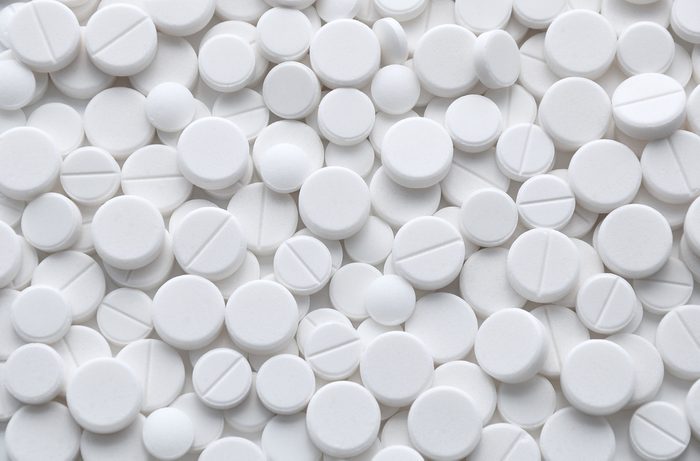
Check your meds
Some medications including antidepressants may cause weight gain, Dr. Kahan says. “Make sure any unexplained weight gain isn’t a side effect of a medication.”

Sleep it off
Getting better quality sleep can help you lose weight and keep it off, shares Los Angeles sleep expert Michael J. Breus, PhD, author of several books on sleep including The Sleep Doctor’s Diet Plan: Lose Weight Through Better Sleep. It has a lot to do with our nightly hormones, he explains. “Ghrelin is the ‘go’ hormone that tells you when to eat, and when you are sleep-deprived, you have more ghrelin,” Breus says. “Leptin is the hormone that tells you to stop eating, and when you are sleep deprived, you have less leptin.” More ghrelin plus less leptin equals weight gain. Find out the 9 ways you can lose weight in your sleep.
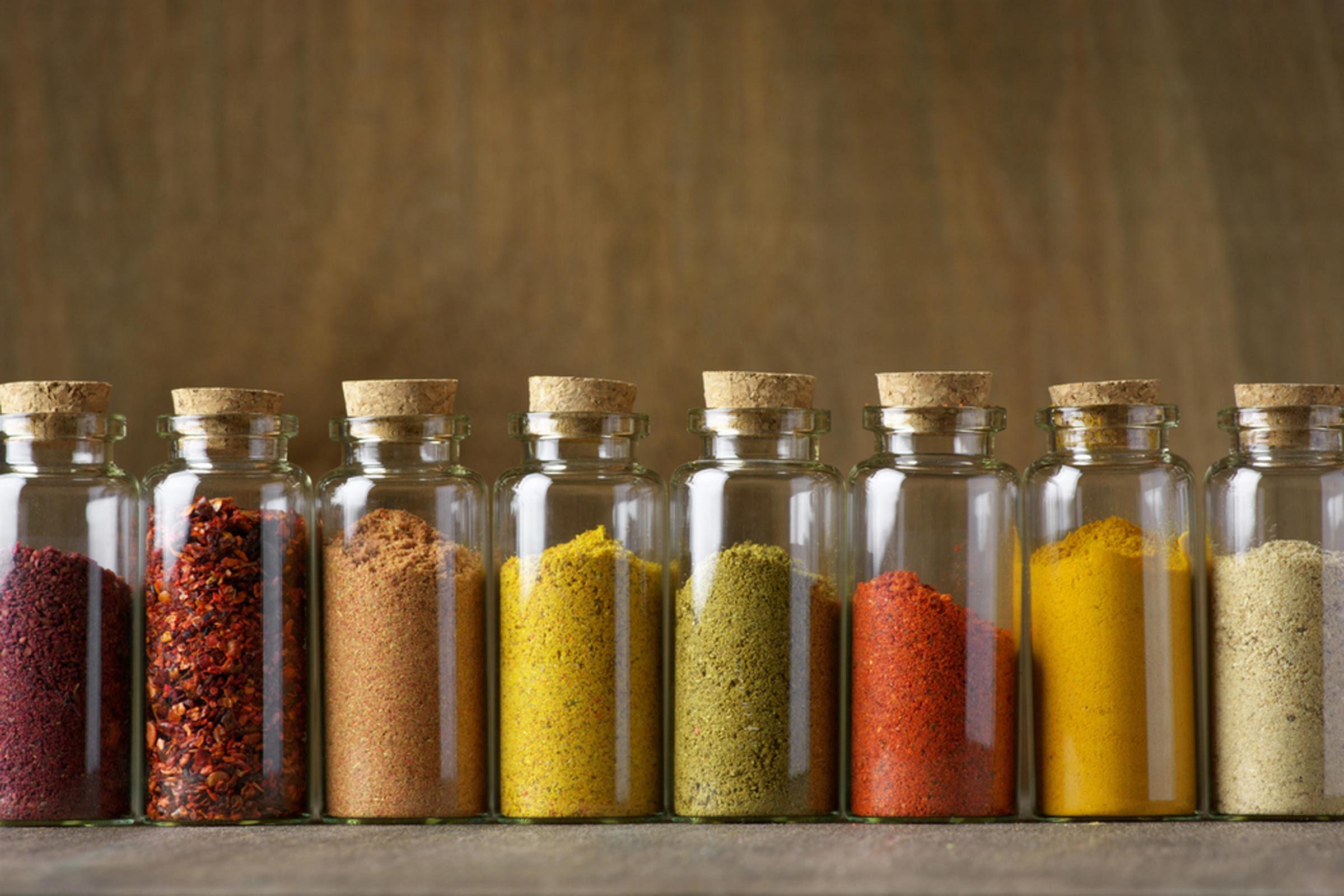
Spice it up
Spicing up your favorite dishes will maximize your sensory experience, says Alan Hirsch, MD, the neurological director of the Smell & Taste Research and Treatment Foundation in Chicago and the author of several books including Nutrition and Sensation. “You will feel full faster and eat less as a result.” A dash of cinnamon may be the secret to weight loss.
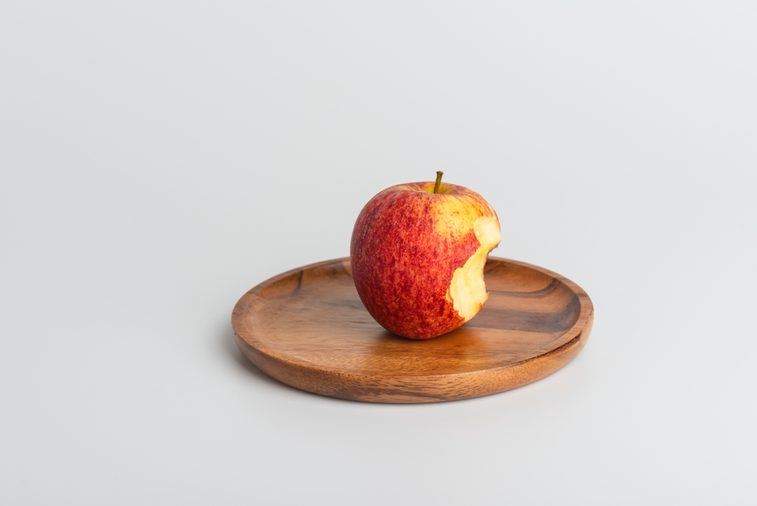
Chew more
Chew more and you’ll eat less. It really can be that simple. In fact, individuals who chewed each mouthful 40 times ate 12 percent less food than those who chewed just 15 times, according to a study in The American Journal of Clinical Nutrition.
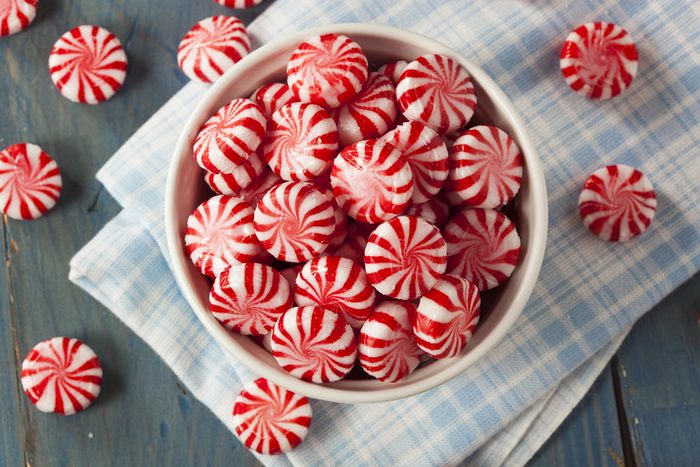
Scratch and sniff
The scent of banana, green apple, and/or peppermint before a meal will make you feel fuller faster and you will lose more weight, according to research from Dr. Hirsch’s lab. “Many other scents work well and enhance our sense of smell and taste,” he says. For example, cinnamon oil may also have some weight loss benefits.
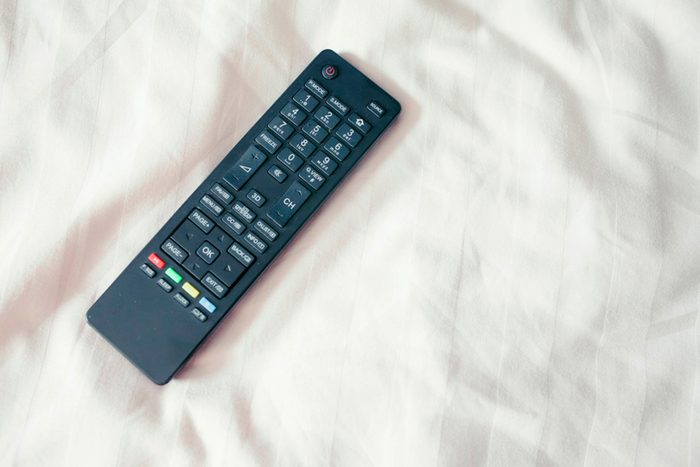
Turn off the TV to eat
The more engaged you are with a TV show, the less attention you pay to what and how much you eat. Such mindless munching can cause you to pack on pounds. “Eat dinner with the TV off,” says Dr. Hirsch.
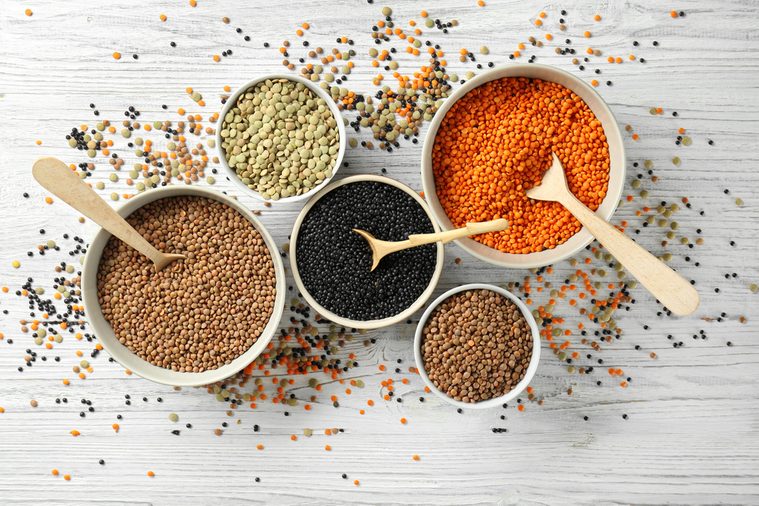
Lay off lectin?
Lectins are plant proteins that can disrupt leptin, the hormone that tells us to stop eating. There’s some evidence that a diet heavy in lectins—think beans, squash, nightshade vegetables (eggplant, peppers, potatoes, and tomatoes), and whole grains (especially whole wheat)—could interfere with leptin, and your brain never gets the message that you are full.
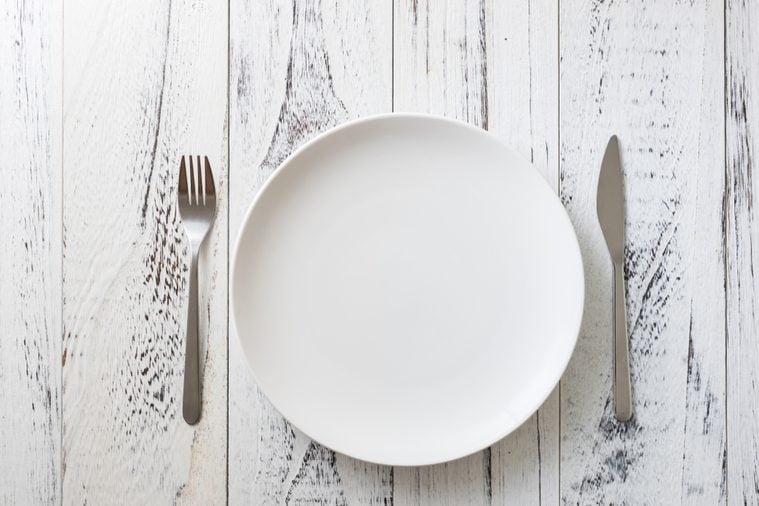
Try fasting
Intermittent fasting is all the rage, and a new study suggests that one type of fast known as the 16:8 diet can reduce weight and lower blood pressure. For 16 hours out of the day—say from 6:30 p.m. to 10:30 a.m.—you don’t eat; for the other eight hours of the day, you can eat freely. Fasters consumed 350 fewer calories, lost about 3 percent of their body weight and saw their systolic blood pressure decreased by about 7 millimeters of mercury (mm Hg). “The take-home message from this study is that there are options for weight loss that do not include calorie counting or eliminating certain foods,” says study author Krista Varady, PhD, associate professor of kinesiology and nutrition in the UIC College of Applied Health Sciences, in a news release. Learn more about the health benefits of intermittent fasting.
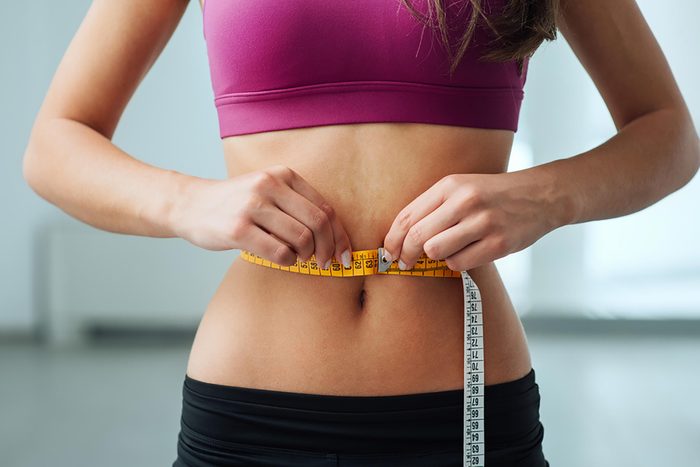
Check your D
Vitamin D deficiency has been linked to a host of health problems and conditions—and obesity is on the list. A study presented at the 2015 European Congress on Obesity found that overweight or obese individuals who were deficient in vitamin D and took a supplement lost more weight and had greater reductions in their waistlines than their counterparts who didn’t. It has even made the list of the best vitamins for weight loss.

Count your bites
Researchers asked 61 people to count the number of bites of food they took each day; the volunteers then pledged to take 20 percent to 30 percent fewer bites during the next four weeks. Those who kept their vow lost about four pounds during that month—and they didn’t change anything else about their diet. “Bite counting has appeal because it’s very simple and is really something anybody can do,” says study author Josh West, a health science professor at Brigham Young University in Provo, UT, in a news release. “We hope that it will be more widely accepted as a strategy for losing weight and that it will continue to be researched.”
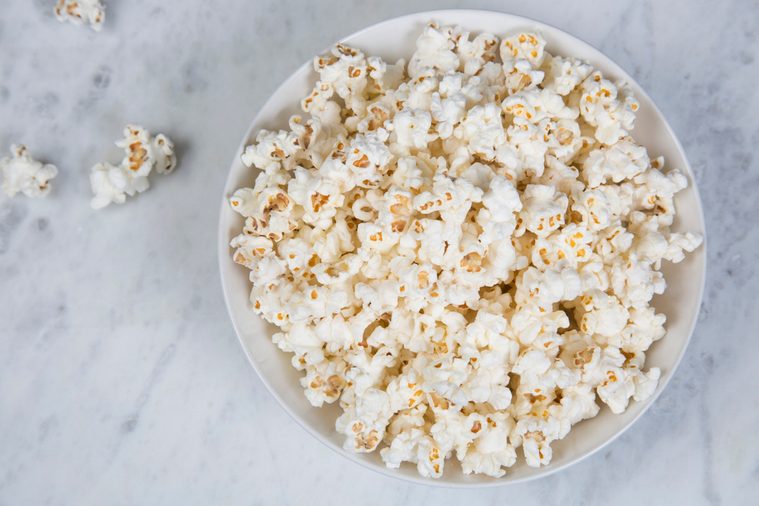
Crunch it out
There’s something called the “crunch effect”—it’s the noise your food makes while you’re eating, and the louder it is the more it may help you shed pounds. Research from Brigham Young University and Colorado State University found that people eat about 25 percent less when the sound of the food they’re chewing is more intense, so crunch away. Find out 50 other easy ways to lose weight naturally.
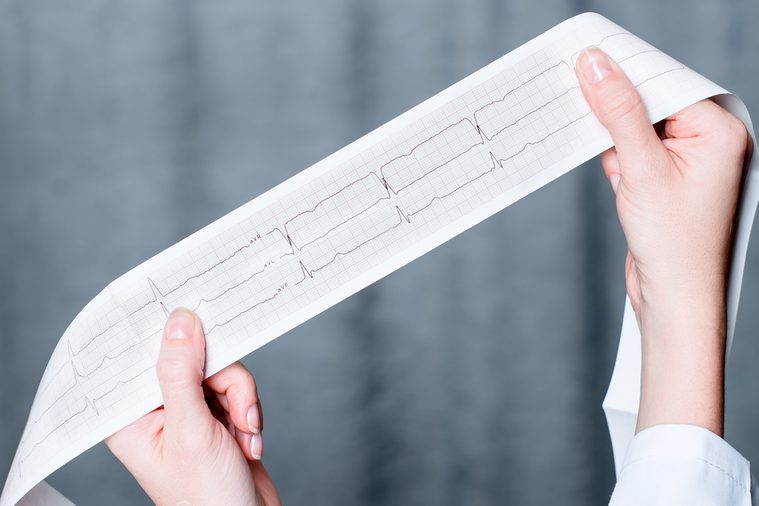
An appetite-suppressing pacemaker
The Maestro Rechargeable System is an implantable pacemaker that controls appetite through electrical stimulation. Pulses interrupt hunger signals from the brain to the stomach. And “it works even better when supported by a dietitian,” says Louis J. Aronne, MD, an obesity medicine specialist at The Comprehensive Weight Control Center of the Division of Endocrinology, Diabetes, & Metabolism at Weill Cornell Medicine in New York City. A healthy lifestyle program that combined online support from a dietitian with the implant “doubled the weight loss we see with this device,” he says.
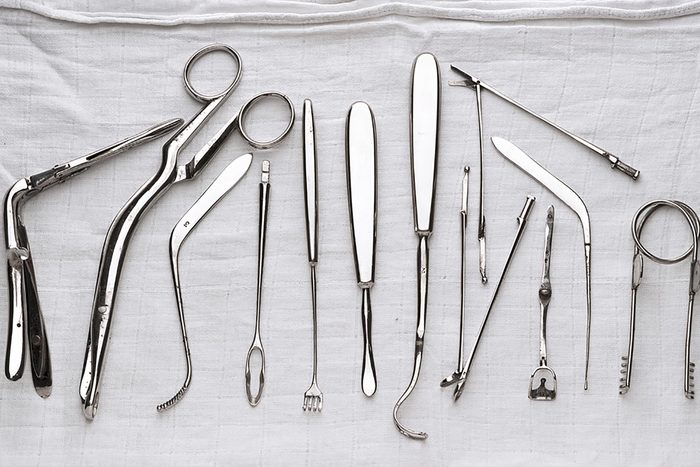
Look into weight-loss surgery
Bariatric surgery can help you lose significant amounts of weight—and it can help relieve many of the health problems that travel with obesity, like diabetes and heart disease. Learn more about the top weight-loss surgery procedures.
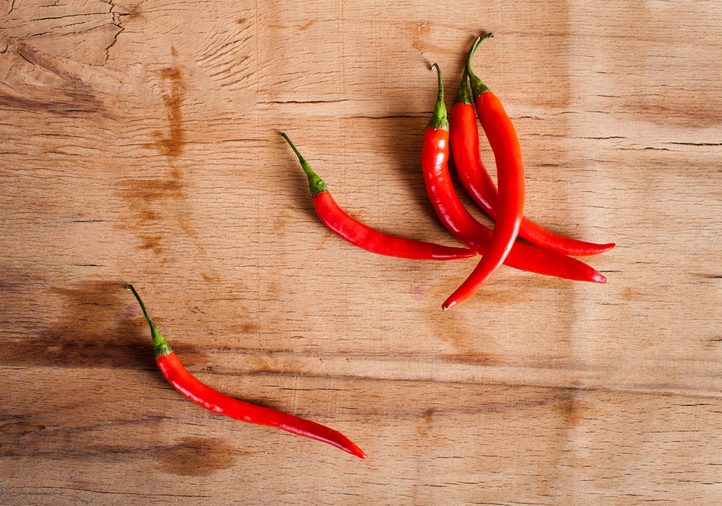
Harness the power of chili peppers
There are actually many health benefits of cayenne peppers. Now, a new drug developed from the compound that gives chili peppers their burn may help aid long-term weight loss. The drug, Metabocin, was designed to slowly release capsaicin throughout the day without producing inflammation or adverse side effects. The findings were reported at the annual meeting of the Society for the Study of Ingestive Behavior “Developing Metabocin as a potent anti-obesity treatment shows promise as part of a robust strategy for helping people struggling with obesity,” says study author Baskaran Thyagarajan, PhD, an associate professor of pharmaceutics and neuroscience at the University of Wyoming School of Pharmacy in Laramie, in a news release.
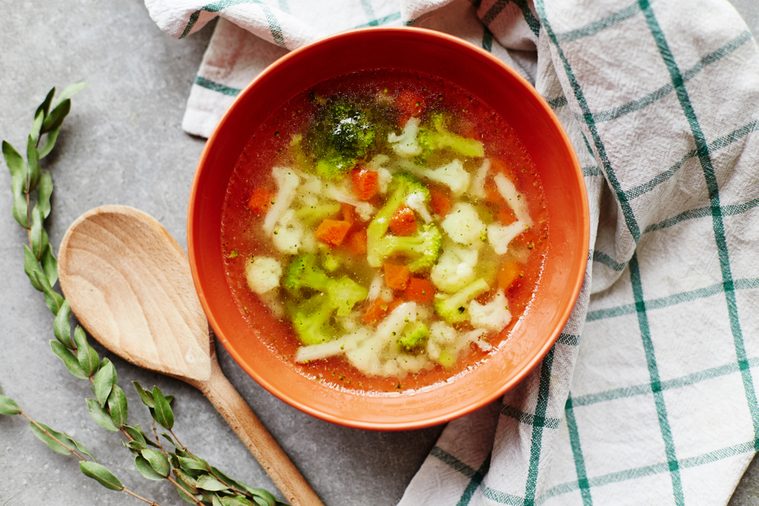
Slurp soup
Bone broth is touted by many for its health and beauty benefits, but researchers may have found another perk: Broth is rich in a savory umami, and this flavor can cause subtle changes in the brain that promote healthy eating behaviors and food choices, especially in women at risk of obesity. “Future research should address whether these observed changes can accumulate and affect food intake over time and/or whether they can be leveraged to help people lose weight more successfully,” says study author Miguel Alonso-Alonso, MD, PhD, an assistant professor at the Center for the Study of Nutrition Medicine of Beth Israel Deaconess Medical Center’s Department of Surgery in Boston, in a news release. Check out these weight loss tips from people who have lost 50+ pounds.
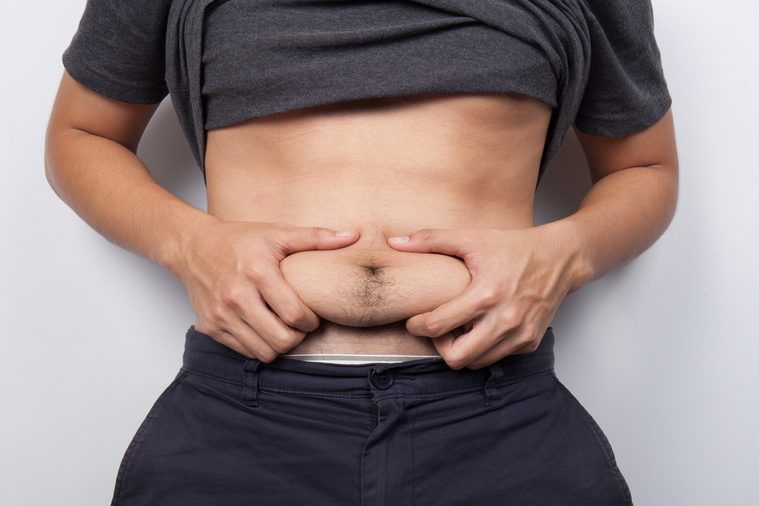
Learn about a new stomach pump
The AspireAssist is a tube-like device that runs from inside your stomach to a valve on the outside of your abdomen. Doctors can install it without major surgery: A tube is inserted through a small incision into the stomach. After each meal, you can empty—aspirate—up to 30 percent of your meal into the toilet by opening a valve on the tube. It sounds bizarre, but “it works,” Dr. Aronne says.
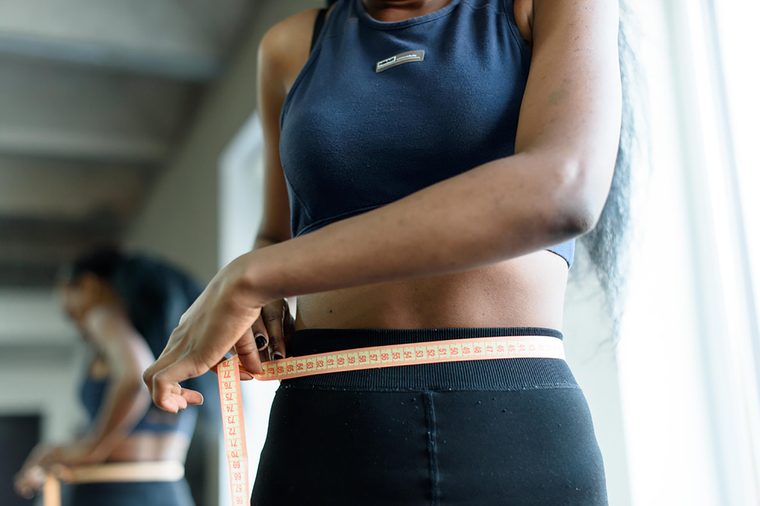
Fat chance
Research is changing the way we think about body fat. For example, there are two kinds in your body—white and brown—and brown fat is active. While white fat just sits on your thighs and belly, brown fat burns calories and is more prominent in normal weight people. Researchers reveal in new research published in the journal Scientific Reports that a new technology may be able to convert white fat to brown fat. The findings were in mice and in human cells; if the researchers can replicate the process in human trials, the technique may help many win the battle of the bulge.
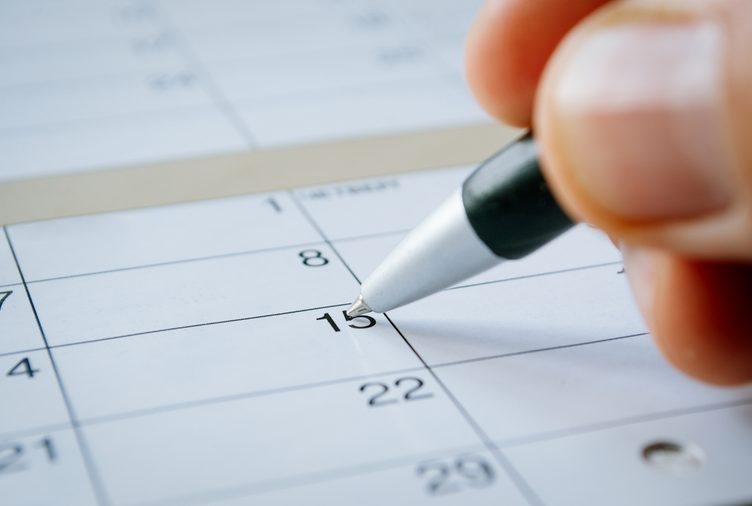
Try another type of intermittent fasting
You could limit your fast to two days a week, says Dr. Aronne. “This is a version of intermittent fasting that is very doable and promising.” It’s known as the 5:2 diet, or 2-day diet. People limit themselves to 800 calories on two—non-consecutive—days a week; on the other days, they eat normally. Dieters tend to find it easier than following a low-calorie diet everyday—yet the weight loss is comparable: “Research out of the United Kingdom showed that weight loss is equal to what can be expected when people eat 1,500 calories daily,” he says.
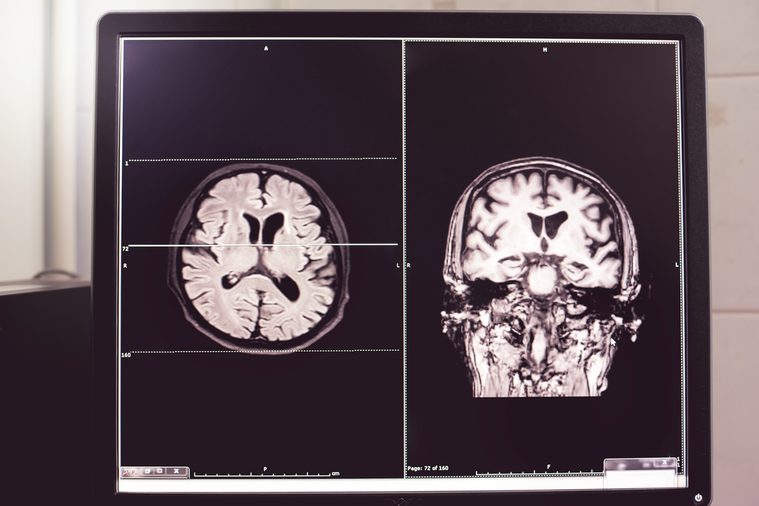
Cooling brain inflammation
In your brain, the small structure known as the hypothalamus regulates your temperature, your metabolism, and your appetite among many other vital functions. “There is a whole line of obesity research showing that hypothalamic injury may be the reason that many people gain weight and can’t lose it,” Dr. Aronne says. Eating too many calories damages nerves in the hypothalamus so they don’t function as well. “There are fewer nerves and they are surrounded by inflammatory cells that prevent the hormone leptin from doing its job,” he says. (Remember, leptin can signal fullness.) But “nerve growth factors can grow new nerves in the hypothalamus in mice and they lose weight and are cured of obesity, suggesting that this injury is reversible.” Human trials are ongoing in humans, he says. “This is about fixing what is broken and I am very enthusiastic about it.” Here’s what happens to your brain on a diet.
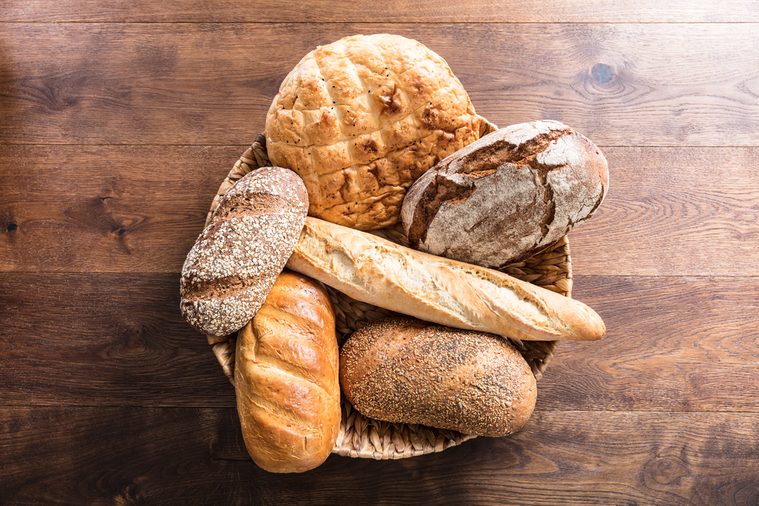
Resist that bread bowl
The first thing you do when you sit down in a restaurant—snack on bread—could be a cause of obesity, Dr. Aronne says. “When you eat bread before your meal, your blood sugar rises and increases production of insulin, and that makes weight gain more likely,” he says. Reversing this order may help put the brakes on weight gain. “Eating veggies, proteins, and then carbs at the end of a meal has a profound impact on blood sugar levels and a greater suppression of ghrelin, the hormone that tells your body to eat,” he explains. Don’t miss these 30 tiny diet changes that can help you lose weight.
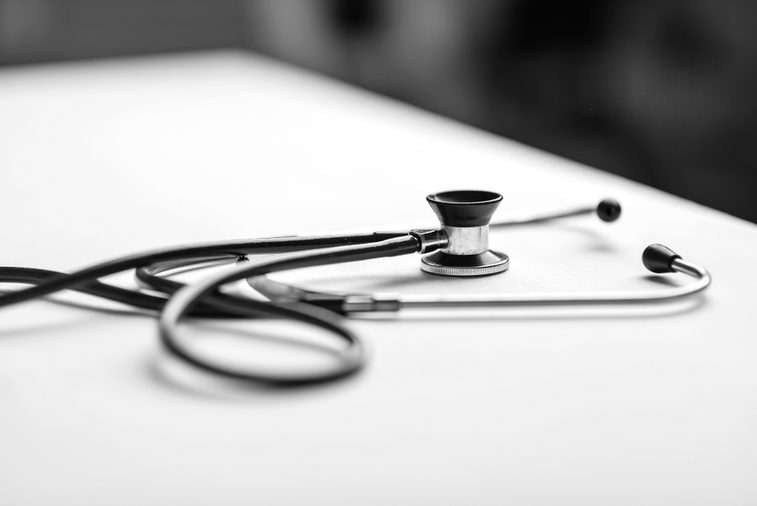
See a specialist
Obesity medicine a whole new field, Dr. Aronne says. If diet and exercise are not working, see an obesity medicine specialist to find out what else you should be doing. Find one near you at the American Board of Obesity Medicine. Check out what experts won’t tell you about weight loss.
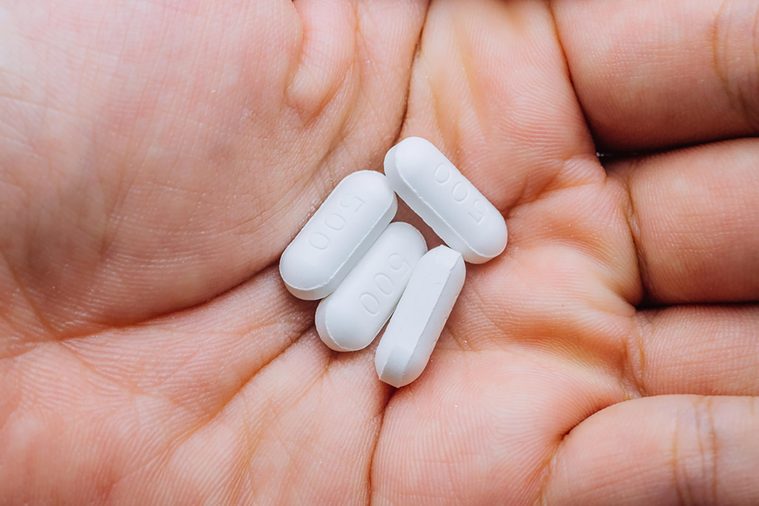
Don’t be afraid to experiment
There are several weight loss medications available and many more in the pipeline, and they all work differently, Dr. Aronne says. “If someone is a responder, we know after three months; if not, we can discontinue the drug and try something else,” he says, “Don’t give up.”
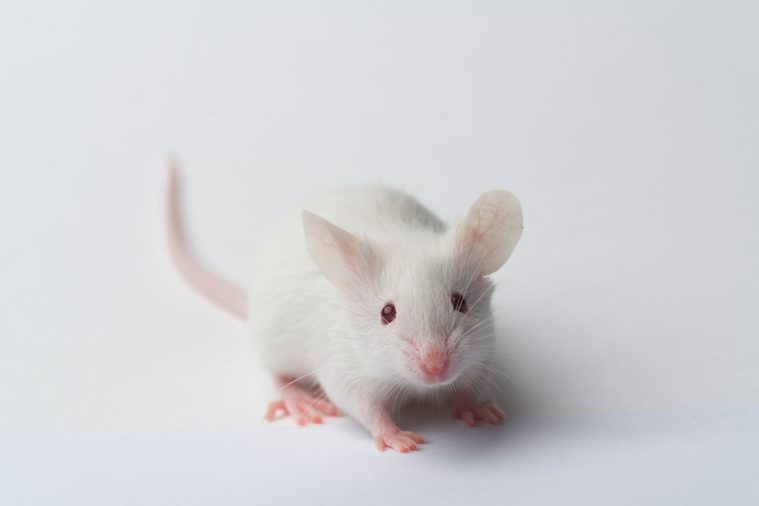
Novel ways to slash fat absorption
When researchers added tiny nano-sized cellulose fibers—they’re 100 times smaller than the width of a human hair—to food, it cut the mice’s fat absorption by up to 48 percent, according to laboratory and animal experiments. “Nanocellulose could be used as food additives or supplements that could help to mitigate fat absorption for certain groups of people,” says Ng Kee Woei, a biomedical engineer and materials scientist at Nanyang Technological University in Singapore, in a news release. The next step is testing the safety and feasibility of using the technology in people.

There’s an app for you
There is no one app that works for everyone who wants to lose weight, Dr. Aronne says. Some apps help you track how many calories you are eating—and this can be a huge wake-up call for some. Other apps can provide in-the-moment feedback which can also be helpful, he says. “The key is to try to find one that works for you.” Be careful though as relying solely on counting calories is one of the things that may be sabotaging your weight loss efforts.
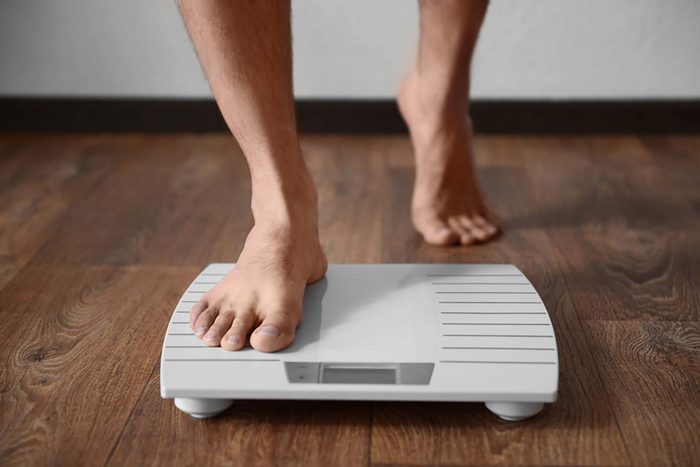
Fighting inflammation
Inflammation is the smoking gun in many diseases—including obesity. “Systemic inflammation in obesity varies dramatically from person to person and is caused by increases in pro-inflammatory hormones,” Dr. Aronne says. There are many approved drugs that cool systemic inflammation, but they haven’t shown consistent weight loss effects. “We are not quite there yet.”

Practice mindful eating
There are many reasons people eat, and many of them have nothing to do needing sustenance. Mindful eating teaches you to zoom in on signals of hunger, taste, and fullness; you’ll learn to enjoy food more and lose weight in the process.

Cook at home
Cooking at home more and eating out less frequently is a proven way to lose weight. In one study, individuals who had at least five home-cooked meals per week were 28 percent less likely to be overweight and 24 percent less likely to have excess body fat than individuals who ate less than three home-cooked meals per week. Be sure you know these 17 tips to help you get over a weight loss plateau.

Avoid chemical exposure
Studies out of the Children’s Environmental Health Center at The Mount Sinai Medical Center in New York has found links between everyday chemicals called phthalates and obesity. Phthalates are found in fragrances, vinyl flooring, shower curtains and more. “Research has shown that exposure to these everyday chemicals may impair childhood neurodevelopment, but this is the first evidence demonstrating that they may contribute to childhood obesity,” says the study’s lead author Susan Teitelbaum, PhD, associate professor in the Department of Preventive Medicine at Mount Sinai School of Medicine, in a news release. “This study also further emphasizes the importance of reducing exposure to these chemicals where possible.” There are other household items that may be causing your weight gain.
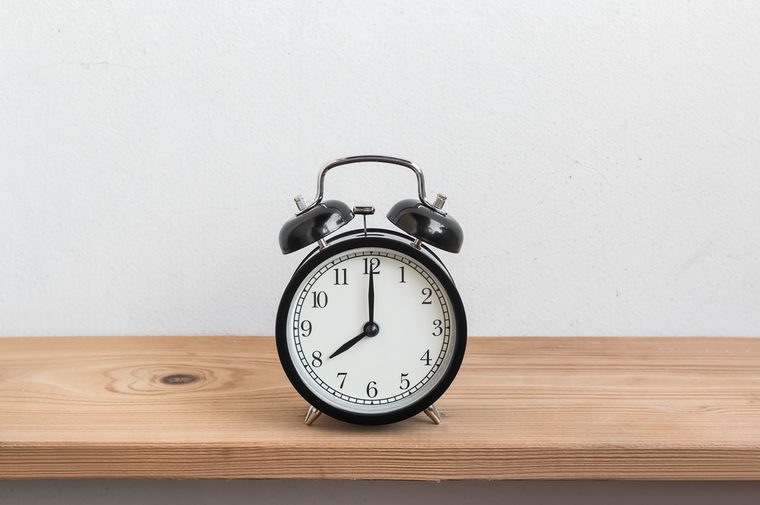
Improve your timing
The key to weight loss isn’t about what you eat—it’s about when. Studies on intermittent-fasting methods have shown that weight loss is more pronounced when you eat the majority of your calories earlier in the day, Dr. Aronne says. “Eating from 4 p.m. to midnight doesn’t work but eating from 8 a.m. to 4 p.m. does.”
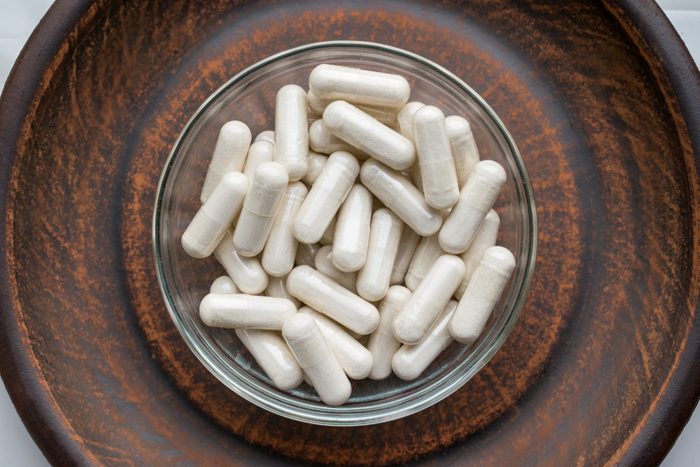
Watch for a vitamin deficiency
If your diet-and-exercise plan isn’t producing the results you want, a vitamin deficiency may be to blame. If you have an underactive thyroid gland and are having trouble losing weight, you may need more iodine. Talk to your doctor.
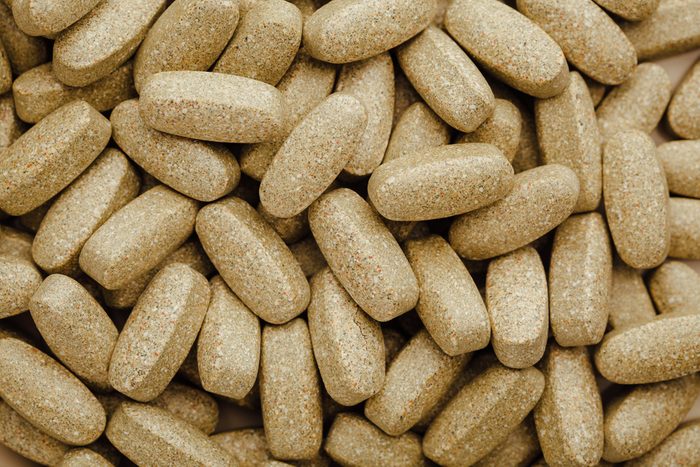
The new “it” weight loss supplement
Glucomannan supplements can help you shed unwanted pounds and improve your health at the same time, suggests promising research. Here are 12 things you need to know about today’s hottest weight loss pill.
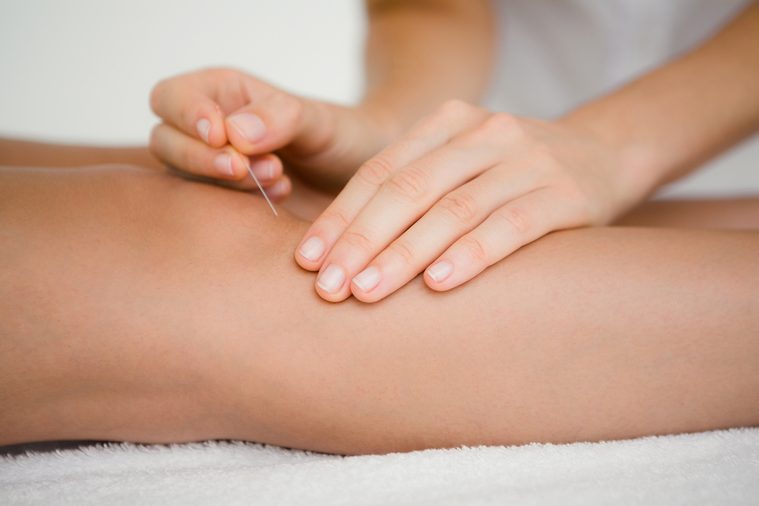
Get needled
You haven’t had a carb in a month and are a staple in your indoor cycling class, but the scale won’t budge. What gives? Acupuncture may be worth a shot. When combined with a reduced calorie diet and regular exercise, women who got ear acupuncture weekly lost seven pounds more than their counterparts who only ate a reduced calorie diet and exercised. The women getting acupuncture also reported feeling less hungry. Check out these 7 compelling reasons to try acupuncture for weight loss.

Chill out
One way to get your body to tap into brown fat is to lower your thermostat; in research, people who keep the house cooler have more brown fat and tend to weigh less.
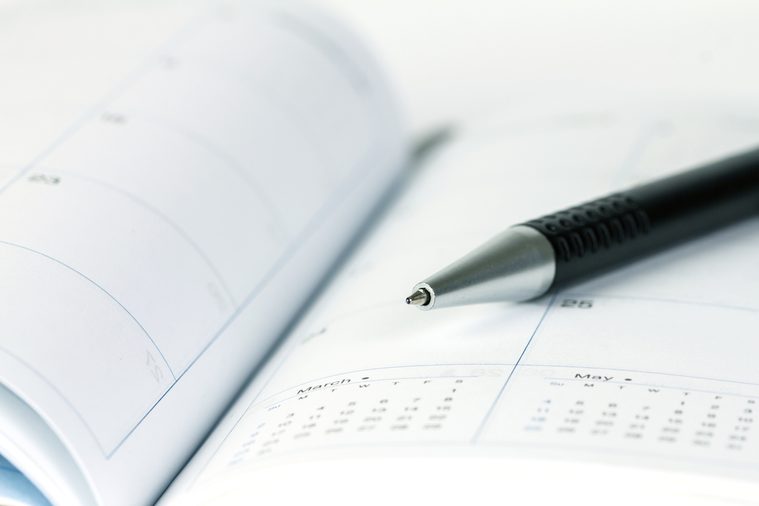
Give yourself breaks
A two-weeks on, two-weeks off approach to dieting leads to greater weight loss and lower regain, according to research from the University of Tasmania. In the study, participants either dieted continuously for 16 weeks or for two weeks and then stopped for two weeks (this group repeated the cycle until they had a total of 16 weeks of dieting). The alternating cycle led to a 31-pound loss on average: those who powered through lost about 20 pounds.
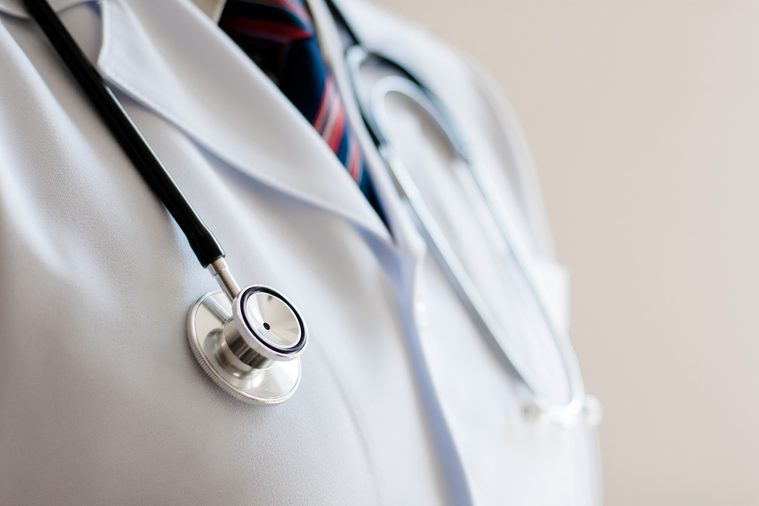
Get your MD on board
If your doctor supports your weight loss efforts, you will lose more weight. This is the main message of a study out of Baltimore’s Johns Hopkins University School of Medicine. Participants who gave their physicians the highest ratings for “helpfulness” during the trial lost an average of 11 pounds, compared to five pounds for those who ranked their physicians as unhelpful. Here are 50 things your doctor wishes you knew about losing weight.
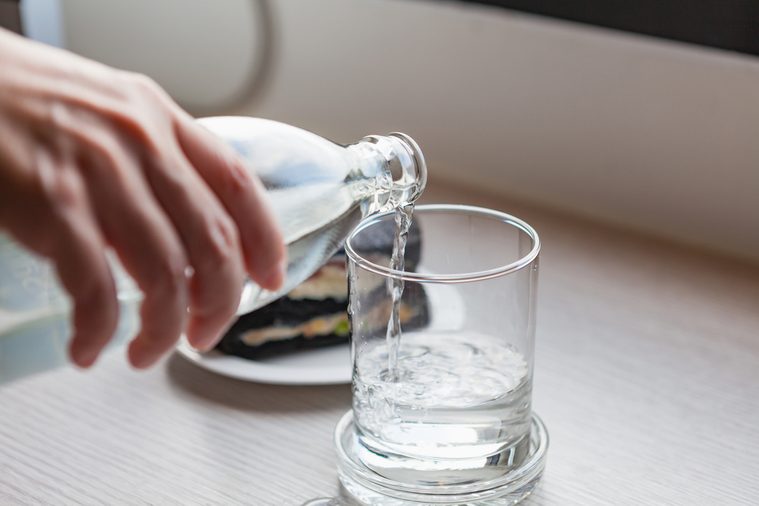
Water, water, everywhere
When people drink two eight-ounce glasses of water before every meal, they lose weight and keep it off for at least a year, according to research in Obesity. A dieting group who didn’t drink water managed to shed about 11 pounds; the water drinkers lost 15.5 pounds.
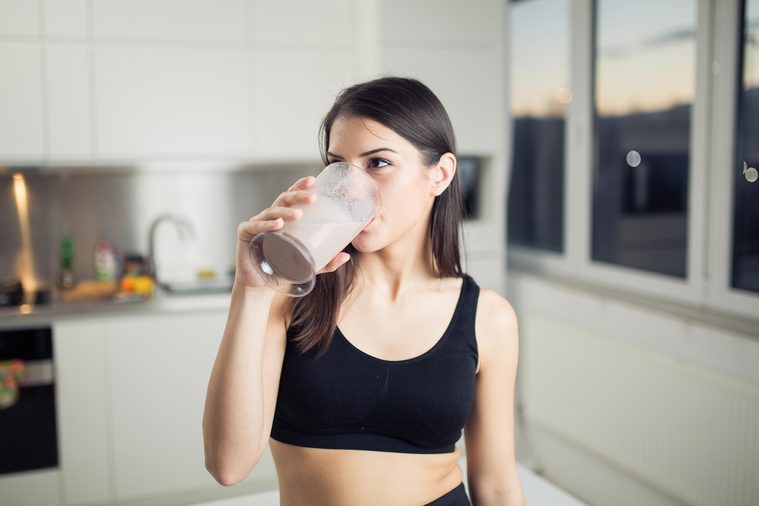
You’re following outdated advice
There are many outdated, misguided tips that are getting between you and your goal weight. Here are 15 of the worst weight-loss tips doctors wish you’d stop following for once and for all.

Your home
Common environmental chemicals—known as obesogens—may set us up to gain weight, and some lurk in our homes. Check out these 10 sneaky ways your house could be making you gain weight.
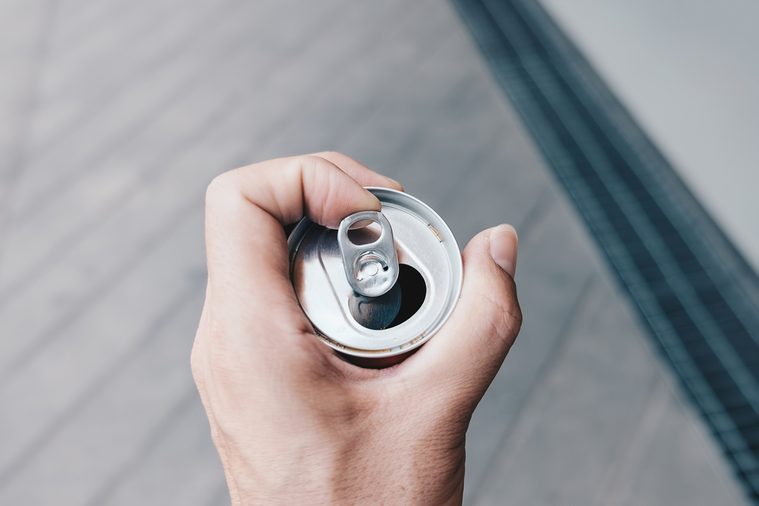
Dump diet soda
Diet soda can help you lose weight, right? Not so fast. The fizzy, supersweet drinks can ruin your metabolism and make you gain weight. Swap it out for seltzer—just squeeze some lime or other fruit into the glass for flavor.

Strike a pose
Yoga not only aids weight loss efforts, this practice also promotes the discipline you need to make healthful living permanent. These 6 yoga poses can help you get in shape ASAP.
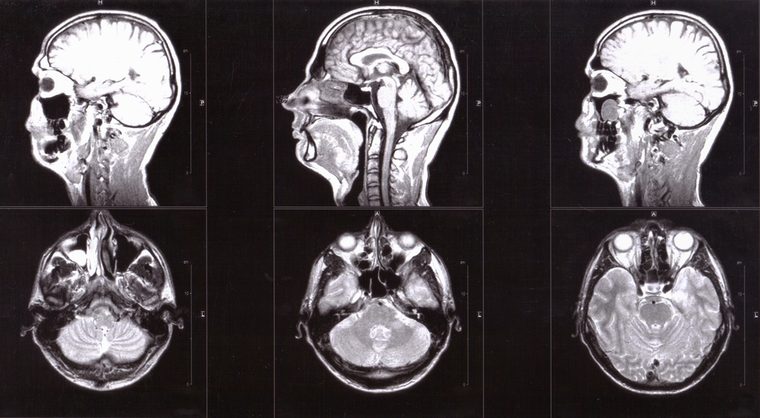
Deep Transcranial Magnetic Stimulation
Already used as a depression treatment, Deep Transcranial Magnetic Stimulation (dTMS), directs magnetic energy to stimulate neurons in specific areas of the brain—and it may aid weight loss in just one session. “dTMS could present a much safer and cheaper alternative to treat obesity compared to drugs or surgery,” says professor Livio Luzi of the Istituto di Ricovero e Cura a Carattere Scientifico Policlinico San Donato, Italy, in a news release.
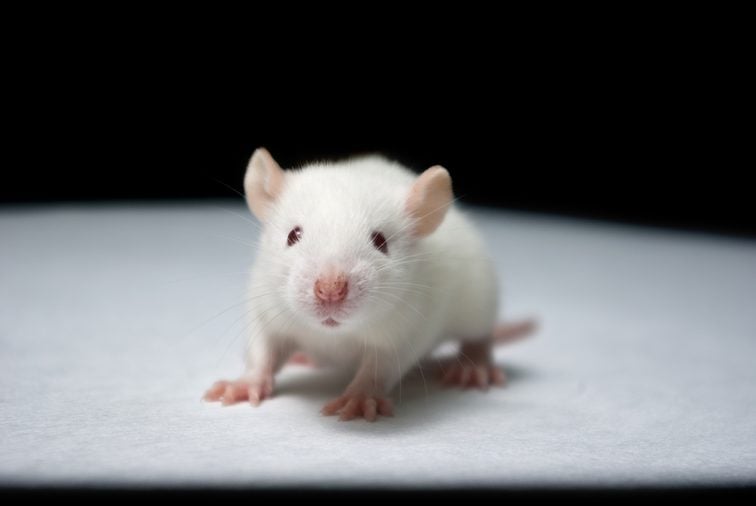
Follow the ROCK effect
When a group of researchers attempted to create extremely obese mice for study purposes, they accidentally created a mouse that eats fat but doesn’t get fat. The mice lack two genes involved in the uptake and storage of fat from food, the team reports in the journal Science. This same effect can be also induced in normal mice by inhibiting a protein called Rho kinase (ROCK) and a ROCK inhibitor is already used to treat glaucoma and could be tested for its effects on weight gain. Stay tuned.

Is obesity contagious?
Some research suggests that obesity is caused by a virus known as adenovirus-36. The good news is that if this proves true, a vaccine could provide a cure—a true weight loss breakthrough. “Research is ongoing to identify antiviral agents that appear to work against Adv36 infection and the best news of all, a vaccine has been developed that appears, in very early studies, to prevent infection with Adv36,” according to the Obesity Action Coalition.
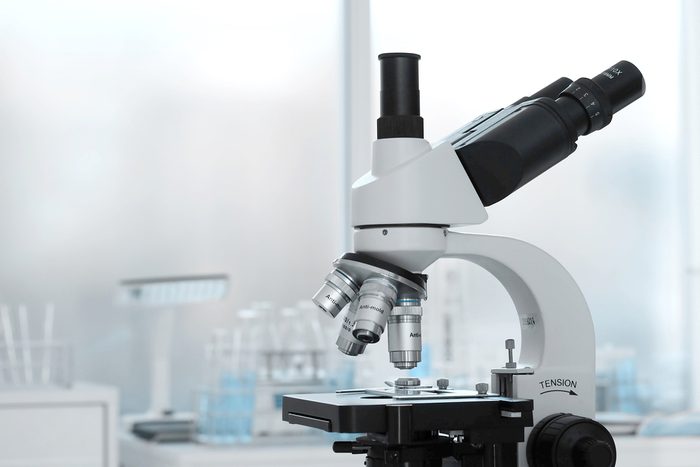
Be patient
Shedding pounds successfully and keeping them off takes time. Plus, science’s understanding of obesity is improving all the time—a workable solution to weight gain may come any day. In the meantime, try following the 50 best healthy-eating tips of all time to live longer, feel better, and get trimmer.
